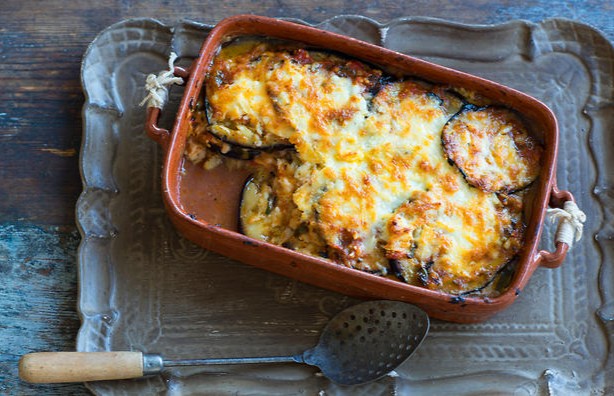CATEGORIES
- Latest News
- Interviews
- Golf Travel
- Features
- Juniors
- Competition
- Events
- Health
- Equipment
- Fashion
- Archive
INFORMATION
CURRENT ISSUE

SUBSCRIPTIONS



Factors contributing to its rise in popularity include associated health beliefs with increased intake of plants, adverse health effects from excessive consumption of animal products, the impact of meat production on the environment and ethical issues and beliefs regarding the treatment of animals.
Whether you are a vegetarian (or wanting to adopt a more plant-based approach), the following information on the principles of nutrition and food values will help you decide whether choosing a diet higher in plant-based foods will be consistent with maintaining your optimal health and correlate with performance on and off the golf course.
Plant based eating is an umbrella term that can be divided into 4 main categories:
There is accumulating evidence that suggests there are several health benefits from a plant-based diet. These benefits include changes in cardiovascular risk factors, improved blood sugar levels, lower lipid profiles, lower inflammation markers and lower blood pressure. It is important to note that these effects aren’t necessarily seen by decreasing the amount of meat (although it could be a factor), but by the increase in plant diversity within an individual’s diet.
The adoption of a plant-based diet means you will automatically be consuming more plant products and receiving the associated benefits. As a population, Australia struggles to achieve the recommended fruit and vegetable guidelines (two fruit & five vegetables a day). Recent evidence shows that 91% of Australians struggle to meet these guidelines. By increasing our plant diversity, it can have an immediate effect on gut health, happier bowel movements and an increase in good gut bacteria within our digestive tract.
From a performance perspective, plant-based eating patterns neither improve nor hinder physical performance and training goals. Including more vegetable into your diet means an increase in wholegrain products and starchy vegetables. This can help an individual achieve their carbohydrate requirements for exercise, as carbohydrates are the body’s main fuel source. Our brain relies heavily on glucose (carbohydrate end product) to fuel decision making which can be beneficial for course management.
Starch is a form of carbohydrate and a slow releasing source of energy that our body uses to sustain long bouts of low intensity exercise. This would be beneficial on the golf course as walking the course for four hours or more aligns with having slower releasing energy on board.
Plant based diets tend to have higher amounts of flavonoids and carotenoids which have strong antioxidant effects. These mechanisms remove free radicals from the body and protect our cells from damage. With the stress somewhat relieved from a naturally higher plant-based diet, you may see reductions in inflammation, reduced muscle soreness, increased endurance performance, and an improved immune system. These are all likely benefits that can be useful for the golfer on and off the fairways.
There has been a recent shift in the literature to explore how reducing meat consumption may affect the sustainability of the environment. A sustainable diet can be described as an eating pattern that has low environmental impact which contributes to food security and health for present and future generations that protects biodiversity and ecosystems.
The evidence suggests that most plant-based diets are less resource intense and taxing on the environment than the production of animal derived foods. A recent study showed that the progression from an animal-based diet to a form of plant-based diet was associated with increased environmental sustainability.
The results showed that vegan diets resulted in 50% lower greenhouse gas emissions and 35% less emissions for a vegetarian diet. This suggests that there is a strong association with the fact that the fewer animal products consumed, the more sustainable and environmentally friendly the diet is. However, there are limitations to this research, and further studies need to be completed to confirm this.
If you decide to transition to a diet that is mostly or exclusively plant-based, you can feel confident that you will see an improvement due to an increase in certain nutrients by consuming more fruits, vegetables and whole grain products that provide high levels of vitamins, minerals, antioxidants, and fibre.
Though be aware of the difference between whole fruits, vegetables and grains versus packaged products that are labelled ‘plant based’.
If you are not keen on the idea of heading down a plant-based diet lifestyle, consider the benefits of how eating some plant-based meals may affect your overall health. Especially if you are not achieving the dietary guidelines for vegetable intake. Some popular strategies tend to be ‘meat free Monday’s or cooking your favourite stir fry or curry with meat alternatives. Give it a try! But do remember, plant-based diets need to be well-constructed and planned. It is recommended to do so with support from your dietitian or medical practitioner to ensure all your daily energy and nutrient needs are met.

Ingredients:
Method:

Ingredients:
Method:
For more information, see the Sports Dietitians Australia factsheet for Plant Based Diets.

Nic Berlin is an accredited practicing dietitian working in private practice in Northside, Brisbane. Nic works with the general population and a variety of different sporting athletes from rugby, soccer, endurance and golfers.
Empowering you to take performance to the next level! SDA is the peak professional body for Accredited Sports Dietitians, working with active Australians to achieve their health and performance goals with credible and expert sports nutrition advice.
To ensure advice is tailored to your specific needs, head to the Sports Dietitians Australia website and make an appointment with your local Accredited Sports Dietitian.
For more sports nutrition information and resources head to the Sports Dietitians Australia website and don’t forget to subscribe to the SDA ReFuel digital magazine which is a free quarterly publication that showcases the role nutrition plays in exercise performance ().
Hemler, E.C. and F.B. Hu, Plant-Based Diets for Personal, Population, and Planetary Health. Adv Nutr, 2019. 10. p. S275-S283.
Fresán, U., & Sabaté, J. (2019). Vegetarian Diets: Planetary Health and Its Alignment with Human Health. Advances in nutrition (Bethesda, Md.), 10(Suppl_4), S380–S388. https://doi.org/10.1093/advances/nmz019
Trapp, D., W. Knez, and W. Sinclair, Could a vegetarian diet reduce exercise-induced oxidative stress? A review of the literature. J Sports Sci, 2010. 28(12): p. 1261-8.
Barnard, N.D., et al., Plant-Based Diets for Cardiovascular Safety and Performance in EnduranceSports. Nutrients, 2019. 11(1).
Boutros, G.H., et al., Is a vegan diet detrimental to endurance and muscle strength? Eur J Clin Nutr, 2020.
Craddock, J.C., Y.C. Probst, and G.E. Peoples, Vegetarian and Omnivorous Nutrition - Comparing Physical Performance. Int J Sport Nutr Exerc Metab, 2016. 26(3): p. 212-20.